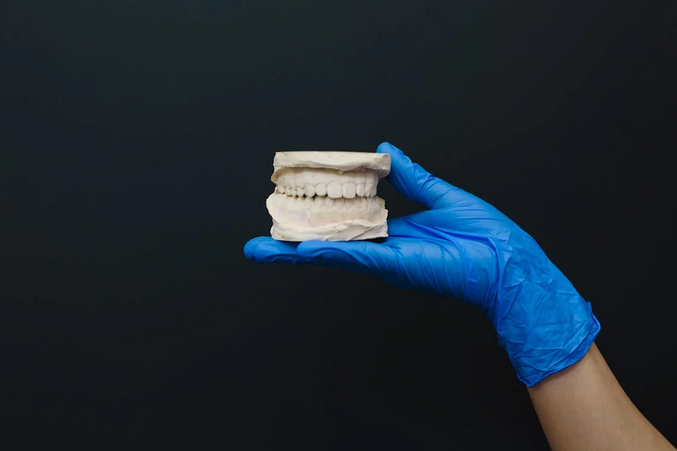How Long Do Dental Implants Last? Exploring the Longevity and Maintenance of Implants
Dental implants have revolutionized modern dentistry, offering a long-lasting and natural-looking solution for those missing teeth. If you’re considering dental implants, one of the first questions that may come to mind is, “How long do they last?” This is a valid concern since dental implants are an investment in your health and appearance. In this article, we’ll explore how long your Novo Dental typically lasts and what you can do to maintain them for years to come.
The Expected Lifespan of Dental Implants
On average, dental implants can last 20 to 30 years or more with proper care. Many patients even report that their implants last a lifetime. The longevity of an implant depends on various factors, including oral hygiene, lifestyle choices, and the overall health of the patient. What makes dental implants so durable is the use of titanium, a biocompatible metal that fuses with the jawbone through a process called osseointegration. Once the implant integrates with the bone, it becomes a sturdy foundation for the crown, making it feel and function like a natural tooth.
Factors That Affect Implant Longevity

While dental implants are designed to last for decades, several factors can impact their lifespan:
Oral Hygiene
The health of your gums and surrounding teeth plays a significant role in how long your implant lasts. Maintaining good oral hygiene by brushing twice a day, flossing, and using mouthwash can prevent gum disease, which is a leading cause of implant failure.
Regular Dental Checkups
Routine dental visits are essential for spotting potential issues before they become serious. Your dentist can assess the condition of your implant, clean hard-to-reach areas, and ensure your gums stay healthy.
Bone Health
Implants rely on the jawbone for support, so it’s important to maintain bone density. Bone loss due to aging, gum disease, or other conditions can compromise the stability of your implant. In some cases, patients may need bone grafts to strengthen the jaw before getting an implant.
Lifestyle Choices
Habits like smoking and heavy alcohol consumption can weaken the implant and increase the risk of infection or gum disease, potentially reducing the implant’s lifespan. Quitting smoking and limiting alcohol intake can improve the longevity of your implant.
Grinding and Clenching
Patients who grind or clench their teeth, also known as bruxism, may put extra pressure on their dental implants. Over time, this can cause wear and tear. Using a nightguard can protect your implant and other teeth from damage.
Maintenance Tips to Extend the Life of Your Dental Implants

Taking good care of your dental implants is the key to maximizing their lifespan. Here are some simple tips to help keep your implant healthy for many years:
- Brush and Floss Daily: Treat your dental implant like you would your natural teeth. Brush twice a day and floss around the implant to remove any food particles or plaque buildup.
- Use Non-Abrasive Toothpaste: Choose a non-abrasive toothpaste to avoid scratching the surface of the implant crown. Harsh toothpastes can cause wear over time.
Consider an Antibacterial Mouthwash
A mouthwash with antibacterial properties can help keep your gums healthy and reduce the risk of infections around the implant site.
Watch What You Eat
While implants are strong, it’s still a good idea to avoid excessively hard foods, like ice or unpopped popcorn kernels, which could crack or damage the crown.
Address Bruxism
If you grind your teeth, talk to your dentist about getting a custom nightguard to protect your implant from excessive force while you sleep.
When Might an Implant Need Replacement?

In most cases, the implant post itself lasts a lifetime, but the crown that sits on top of the implant may need to be replaced after 10 to 15 years due to normal wear and tear. Crowns are typically made from porcelain or ceramic, which are durable but not indestructible. If you notice any signs of discomfort, changes in how your bite feels, or wear on the crown, it’s essential to see your dentist for an evaluation. Early intervention can prevent more significant problems from developing.
Dental implants are a long-lasting solution for missing teeth, with the potential to last a lifetime when cared for properly. By maintaining good oral hygiene, visiting your dentist regularly, and making healthy lifestyle choices, you can ensure your dental implants remain in great shape for many years to come.



 Finding quality products that will give you that services that yearn for require you to be keen during the whole process. Here, you are not expected to hurry. Take time to do sufficient research so as to determine the best bag for your need. Get to visit online reviews and have a chance to know what other people think about the backpacks that you are about to buy.
Finding quality products that will give you that services that yearn for require you to be keen during the whole process. Here, you are not expected to hurry. Take time to do sufficient research so as to determine the best bag for your need. Get to visit online reviews and have a chance to know what other people think about the backpacks that you are about to buy. Another big benefit that you can get from having these bags is that they will give you a chance to perfectly store your staffs. You can be sure that no will smell it. Also, when you want to make use of your staff after getting to your destination, you will not experience any difficulties.
Another big benefit that you can get from having these bags is that they will give you a chance to perfectly store your staffs. You can be sure that no will smell it. Also, when you want to make use of your staff after getting to your destination, you will not experience any difficulties.